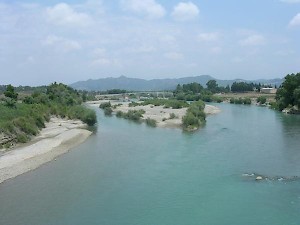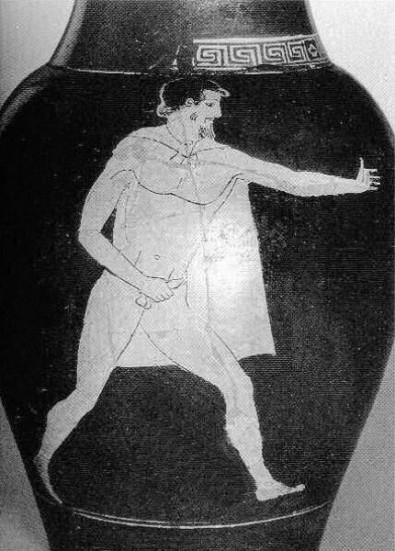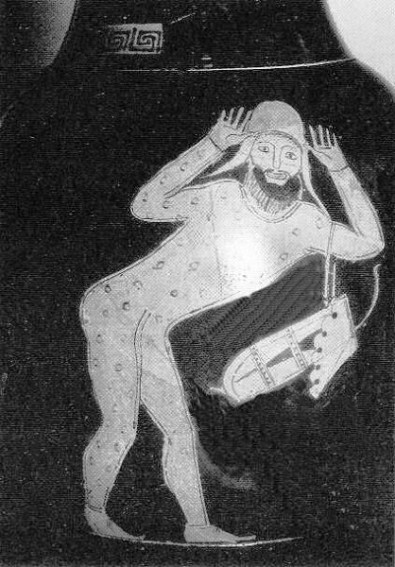Eurymedon (468 BCE?)
Q607987Battle of the Eurymedon: battle between the Persians and Athenians, probably fought in c.468.

The Athenian admiral Cimon defeated the Persians in c.468 in a double battle. During the day, he defeated the Persian navy at the estuary of the Eurymedon (near Aspendus) and during the night, he unexpectedly attacked the camp of his enemies. At the Persian court, the news of the defeat created great unrest, and if we are to believe the Greek historian Diodorus, king Xerxes was murdered as a consequence of his army's defeat.note This is impossible (he died three years later), but it was an important event nonetheless.
Diodorus' account
Cimon, not satisfied with a victory of such magnitude, set sail at once with his entire fleet against the Persian land army, which was then encamped on the bank of the Eurymedon River. And wishing to overcome the barbarians by a stratagem, he manned the captured Persian ships with his own best men, giving them tiaras for their heads and clothing them in the Persian fashion generally. The barbarians, so soon as the fleet approached them, were deceived by the Persian ships and garb and supposed the triremes to be their own. Consequently they received the Athenians as if they were friends.
And Cimon, night having fallen, disembarked his soldiers, and being received by the Persians as a friend, he fell upon their encampment. A great tumult arose among the Persians, and the soldiers of Cimon cut down all who came in their way, and seizing in his tent Pheredates, one of the two generals of the barbarians and a nephew of the king, they slew him; and as for the rest of the Persians, some they cut down and others they wounded, and all of them, because of the unexpectedness of the attack, they forced to take flight. In a word, such consternation as well as bewilderment prevailed among the Persians that most of them did not even know who it was that was attacking them. For they had no idea that the Greeks had come against them in force, being persuaded that they had no land army at all; and they assumed that it was the Pisidians, who dwelt in neighboring territory and were hostile to them, who had come to attack them. Consequently, thinking that the attack of the enemy was coming from the mainland, they fled to their ships in the belief they were in friendly hands. And since it was a dark night without a moon, their bewilderment was increased all the more and not a man was able to discern the true state of affairs.
Consequently, after a great slaughter had occurred on account of the disorder among the barbarians, Cimon, who had previously given orders to the soldiers to come running to the torch which would be raised, had the signal raised beside the ships, being anxious lest, if the soldiers should scatter and turn to plundering, some miscarriage of his plans might occur. And when the soldiers had all been gathered at the torch and had stopped plundering, for the time being they set up a trophy and then sailed back to Cyprus, having won two glorious victories, the one on land and the other on the sea; for not to this day has history recorded the occurrence of so unusual and so important actions on the same day by a host that fought both afloat and on land.note
The Eurymedon vase
One of the most remarkable "monuments" of this battle is a small vase that can now be seen in the Museum für Kunst und Gewerbe in Hamburg (Germany). It shows an Athenian in heroic nudity, approaching a Persian on the other side, who is bent forward, as the pathicus, i.e. the man who is being penetrated during a homosexual intercourse. On the vase is written: "My name is Eurymedon. I am getting screwed."
 |
 |